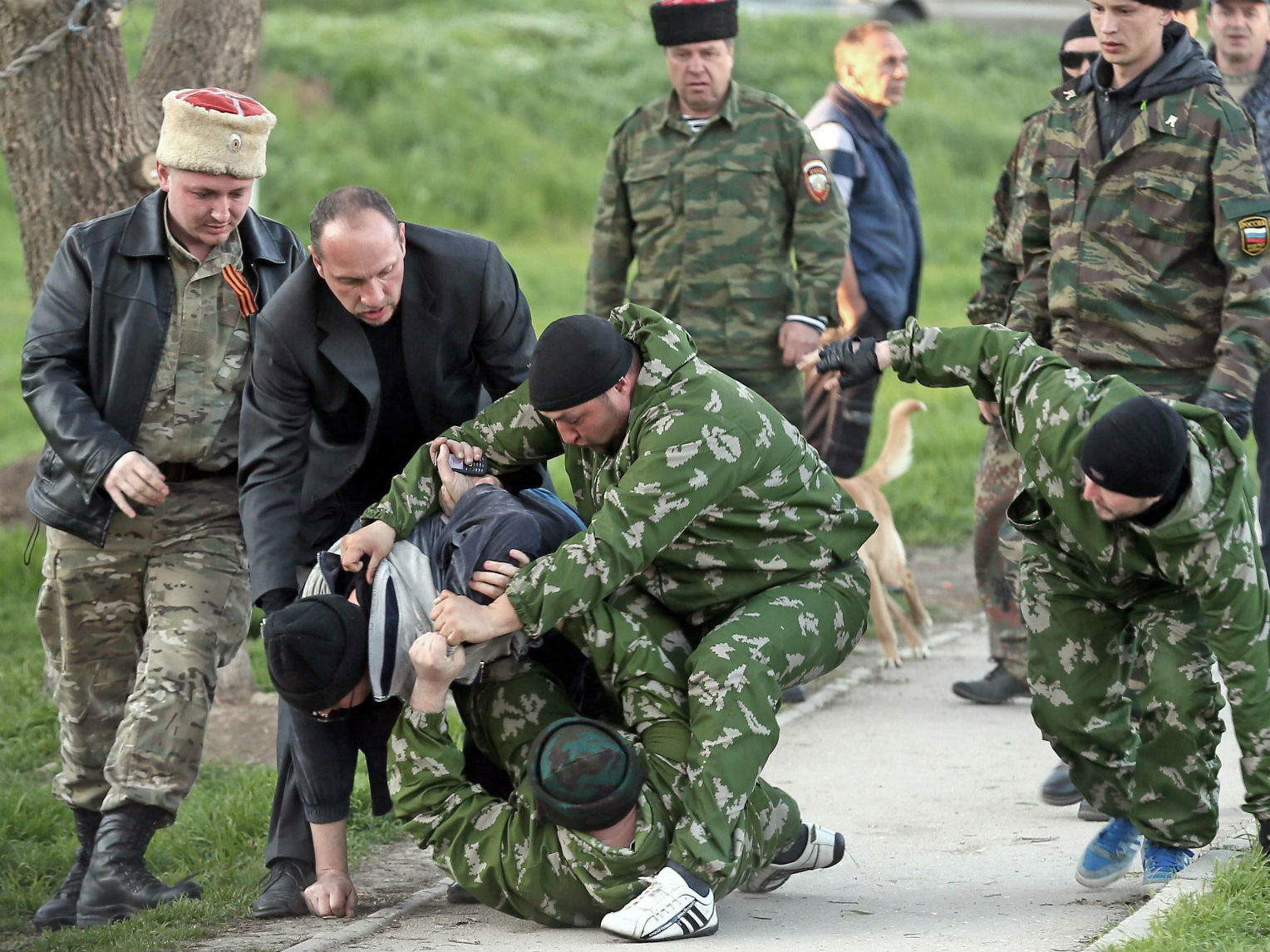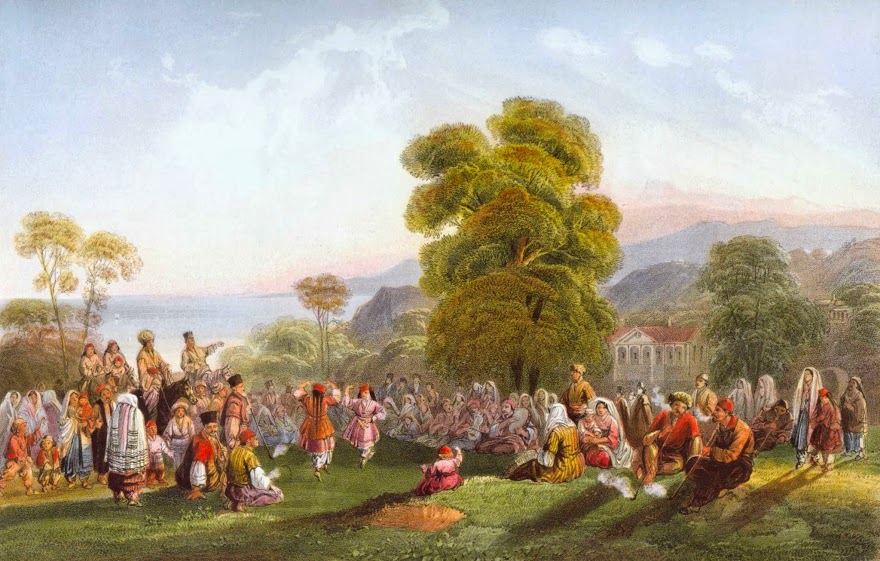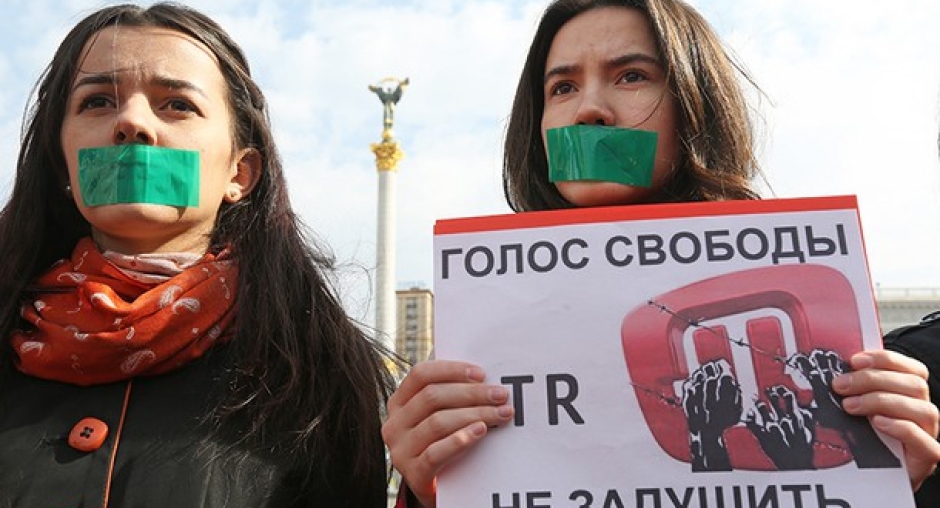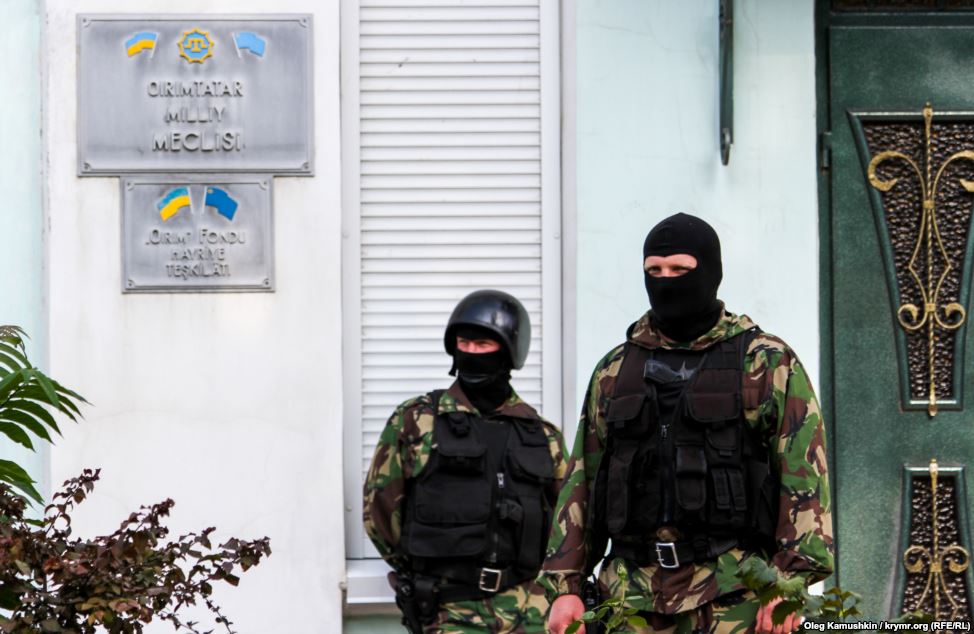Most definitions of genocide focus on the mass murder of one ethnic group by representatives of another, but that crime against humanity also includes the artificial transformation of the ethnic composition of a place by the artificial expulsion of its historical residents and the artificial introduction of outsiders.
That is a crime, growing evidence suggests, that the Russian Federation is guilty of in occupied Crimea. In an article for the IdelReal portal, Radio Svoboda
’s Ramazan Alpaut survives one of the aspects of this act of genocide, “the de-Tatarization” of the Ukrainian peninsula.
According to Russian official statistics, Alpaut says, “about 247,000 Russians have moved to Crimea since 2014, while “about 140,000,” overwhelmingly ethnic Ukrainians and Crimean Tatars have departed for other parts of Ukraine. These movements have increased the Russian share of the population from 60 to 65 percent and cut that of the Ukrainians from 24 percent to 15 with Crimean Tatars increasing from 10 to 12 percent.
But Ukrainian officials and experts say the numbers of those arriving and departing are greater and the ethnic shift thus far larger. Boris Babin, the permanent representative of the Ukrainian president for Crimea, says that “we can with confidence say that we are talking about hundreds of thousands of people.”
“A large number of Russian government employees are being shifted to Crimea with members of their families, and the latter are seeking work. In addition, there are many gastarbeiters” from the Russian Federation, he says. And there are far more people who have fled than the 40,000 who have officially registered with Ukrainian authorities.
But he acknowledged that the exact figures are impossible to specify because the Russian occupation authorities treat them as “a military secret” given that “they know very well that they are committing a military crime,” one defined as an act of genocide by the Geneva Convention of 1949
.
Refat Chubarov, another Crimean Tatar leader who is a deputy in the Verkhovna Rada, seconds that view. He points out that one of the major reasons is Moscow’s expansion of pre-existing military bases and the creation of new ones, something that has brought many soldiers and sailors and members of their families to the Ukrainian peninsula.
According to Andrii Klymenko, editor of the Black Sea News, the Russian occupiers treat the demographic situation in Crimea solely from the perspective of how best to ensure that they have a loyal population which won’t engage in protests or make significant demands on the authorities.
In support of these population shifts, Ukrainian expert Yevhen Horyunov says that the occupiers give preferences to the new arrivals in public schools and kindergartens. “This is the only thing that Russia can give them so that they will settle here.” At the same time, the occupation authorities make local people wait in line.
Finally, Iryna Pribytkova, a sociologist at the Ukrainian Academy of Sciences, says that what Russian officials are doing now is a direct continuation of what tsarist and then Soviet officials did earlier – trying to change the ethnic balance in Crimea in order to be in a better position to hold its acquisition.
“This must be watched via constant monitoring,” she says, something “Ukraine is doing,” in order to see both the ways in which Russia is bringing in new people and seeking via repression to force the departure of Crimean Tatars and Ukrainians.
Read More:
- Trump’s statement on Crimea can lead to serious consequences, says American analyst
- Crimea’s growing water problem might provoke new Russian attack against Ukraine
- Two dangerous proposals on Crimea with even more dangerous consequences
- Putin seized Crimea with regular army but outsourced action in Donbas
- From Crimea to Siberia: the prisons where Russia holds hunger-striking political prisoners Sentsov & Kolchenko
- Putin repeating Stalin’s genocide with ‘new hybrid deportation of Crimean Tatars’
- Hacked military docs reveal how the Russian 18th motorized brigade invaded Crimea
- 74 years on, Russian genocide of Crimean Tatars continues
- Moscow forming ‘death squads’ in occupied Crimea and elsewhere, Shmulyevich says
- Hague court rules Russia must compensate Ukrainian investors $159 mn for Crimea losses
- Four years after annexation: Ukraine still connected with occupied Crimea, albeit weakly
- Little green men: the annexation of Crimea as an emblem of pro-Kremlin disinformation
- The attack on media freedom in Crimea threatens to stop coverage of rights abuses
- Crimean jailed for Ukrainian flag announces termless hunger strike
- The Crimean Tatar Palace and other historic sites Russia is destroying in occupied Crimea
- Military base instead of a resort: Crimea four years after the occupation
- We must protect Crimea’s human rights defenders
- UK journalist who wrote about Crimean Tatar political prisoners fined, expelled from Crimea





